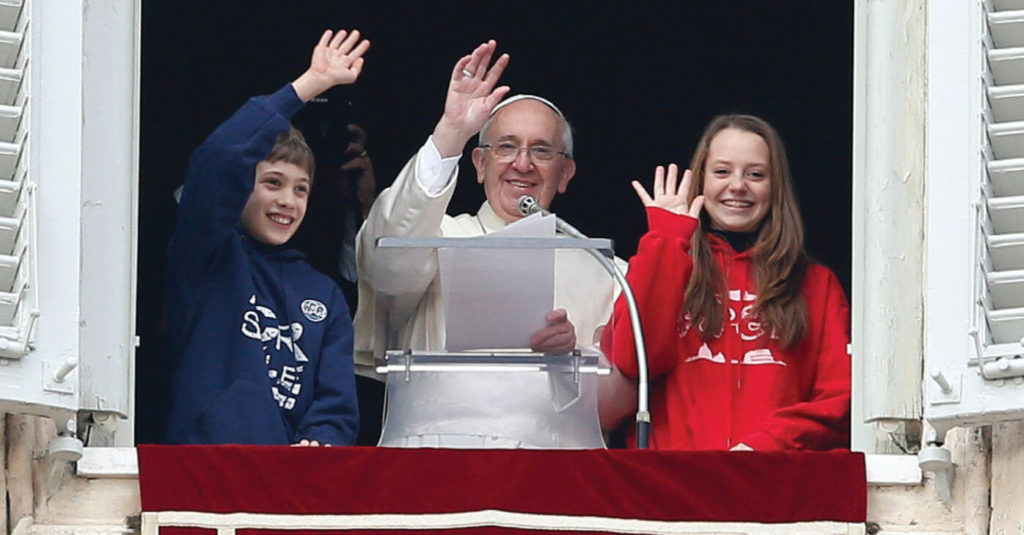In this passage Jesus raises two questions important to the whole of Mark’s gospel: “Why are you afraid? Have you no faith?” Perhaps Jesus should have asked, “What makes you think I’m asleep on the job?”
These questions suggest where the audience is at for whom Mark writes in AD 70. This audience faces a turning point. The Roman siege to put down the Jewish rebellion has scattered the Christian community in Jerusalem. Many have fled to Galilee. The destruction of the temple has left these Christian Jews no place to return to the religious practice of the past. Fear seems to prevent them from experiencing the power of faith in Jesus, from going ashore in a new time and place.
Jesus’ questions imply our whole life journeys as Christians. How do we move from fear to faith or from doubt to faith? How do we navigate the stormy seas of our times and travel from one shore to another?
Mark wants his hearers to recognize that they are where Jesus’ disciples were at the beginning of their ministry — afraid, amazed, often confused. For Mark fear and awe are thresholds where faith and commitment begin.
- What shore has your community of faith left? Toward what shore are you headed?
- When if ever has fear been a threshold of faith for you?
Mark is the first to write a gospel. His narrative is closest to oral tradition. To write the first gospel, Mark gathers oral traditions about Jesus that Christian communities have heard from his eyewitness disciples. These communities continue to tell and shape the traditions as they gather in Jesus’ name and break bread together as he asked.
By becoming an author, Mark creates a written narrative that travels though time and space beyond the lifetimes of Jesus’ eyewitness disciples and the Christian communities they founded. It travels not only to the late first-century audience for whom Mark writes but to us 2,000 years later. Sunday’s sea-crossing is a story to which Christians of every generation can relate.
A boat transports many people together. A boat full of disciples gives us an image of Church, of Christian believers traveling the seas of time and facing storms that raise our fears and call us to faith.
- What storms threaten us today that Christians have not faced in the past?
- How do you experience Jesus in the Church today — awake or asleep?
- How necessary is chaos to renewal?
How people move from their fears to faith in Jesus concerns Mark. To provide role models, Mark consistently characterizes Jesus’ disciples that we know In their early confused, bewildered, often anxious experience of Jesus. We get to know Peter, Andrew, James, John, Mary Magdalene, Mary the mother of James and Joses, Salome in their pre-resurrection understanding of Jesus. Mark wants his audience to know that these disciples who became leaders in the Christian community once felt as fearful and apprehensive as they do.
Sunday’s gospel creates a typical threshold for hearers to come to faith. The disciples in the boat are afraid for their lives. They awaken Jesus, asking, “Don’t you care that we are perishing?” Jesus calms the sea and asks why they are afraid, why they have no faith.
Jesus’ calming action and chastening questions fill the disciples with awe. They move from one kind of fear to another — from fear for their lives to awe. Mark suspends the story with the disciples expressing their awe in a question, “Who is this that even the wind and sea obey him?”
This rhetorical question in the narrative creates a threshold for the hearers of the gospel. We can answer the question. Mark writes for us. Like the disciples in the boat we can move from fear to awe to faith. Awe is a gift of the Spirit. Awe is the beginning of wisdom, a threshold of faith according to the Old Testament Wisdom books.
- When have you experienced a shift from fear to awe?
- How have your experiences of awe affected your faith?

Like the generation Mark addresses in AD 70, Catholic Christians today are living through a profound change. From the time of the Council of Trent (1574) until Vatican II (1962-65), the Church stayed remarkably the same, frozen in response to the Reformation.
The contemporary Church has experienced a quantum leap in the past 56 years. Our boat is afloat in a global world, wired and webbed together not only electronically and economically but culturally. Many fear so much change. For some the symbols that evoked the awesome mystery of God have vanished — the polyphony, the incense, the Latin.
For many others, the changes help them recognize the holy in their everyday work and family relationships. They lector, sing, serve the poor and sick, teach, build, work for justice. But this rising participation of the people of God in parishes creates tensions in the Church as a hierarchical institution. A new pastor with a new style can undo the work of pastoral committees and fundraising efforts, alienating parishioners. And a new pope with a common touch can raise hope up again.
Every Eucharist calls and empowers us anew to be the life-giving body of Christ in the world. Every Eucharist celebrates our hope of communion on earth as in heaven.
- What changes have created new life for your community of faith?
